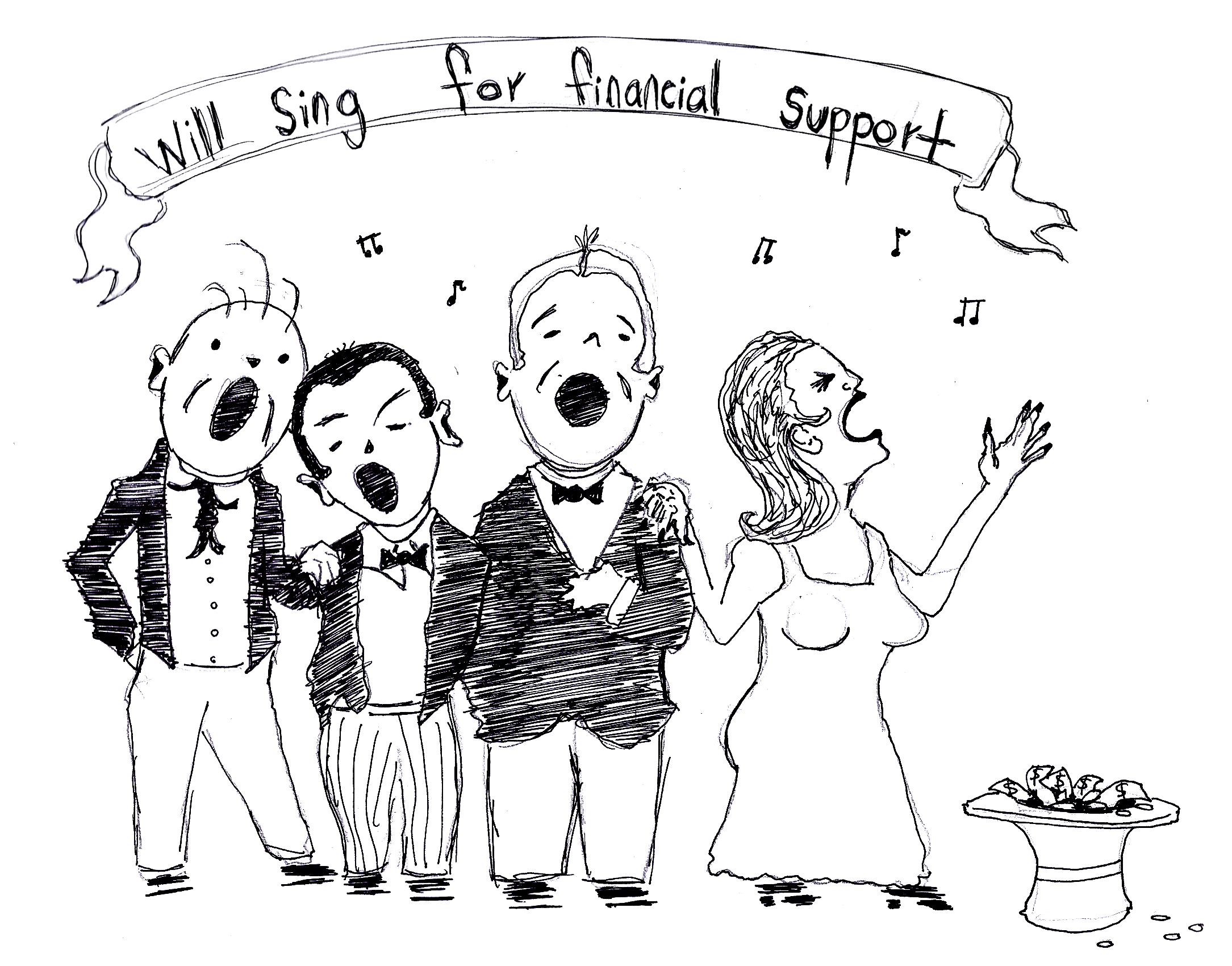As some may know, “a cappella” is Italian for “in the manner of the chapel,” but you may not find Conn’s A Cappella groups performing in the campus chapel this year. In the past, all-group a cappella concerts at Conn have taken place in the chapel–favored for its natural acoustics–and have easily drawn crowds that pack the pews. Traditionally, these special concerts have been free for the campus community and locals, but as of this September you may have to start lining up to procure your tickets.
Earlier this year, leaders of Conn’s seven a cappella groups received a notice that all-group concerts in the chapel were becoming a safety hazard, with students sitting in windows, blocking exits, and filling the space far beyond its intended capacity. The groups were given two alternatives for all-group concerts: host ticketed concerts in the chapel and hire Campus Safety or host events in a different venue, such as Evans Hall or Palmer Auditorium. However, both of these options come with a price… a literal one.
Though tickets for the chapel are free, Campus Safety’s rates for simply preventing dangerous overcrowding of the space are quite expensive for student groups. To hire Campus Safety for a concert in the chapel costs $35 per hour for each Campus Safety officer. One officer is required for every hundred people, so for chapel concerts (which comfortably hold about 300 individuals) there is a minimum cost of approximately $210.
The second option involved significantly more cost, as Evans Hall and other performance spaces are more expensive because of their specialized lighting and equipment. While students receive a discounted rate, Evans Hall still costs $300 per event, and a student or Campus Safety officer is required to watch the artwork outside the hall for the duration of the concert.
While this may not seem like a lot of money split among seven groups, the costs add up, especially because a cappella groups receive no SGA or school funding. Will Hardy ’14, SGA’s Chief of Finance, broke down the reasoning behind this decision: “Traditionally, groups that are exclusionary in nature are not allowed to receive funding from the student government…because of the audition process, a cappella groups meet this definition.” However, both Hardy and SGA president Evert Fowle ’14 expressed the desire to find a way to fund all-group concerts because they are some of the most well-attended events on campus.
Director of Student Engagement and Leadership Education Scott McEver expressed similar thoughts on financial support for the groups, saying, “There is a case to be made for [a cappella] groups receiving funding specifically for concerts because these events welcome and benefit the larger community.”
The case for funding is bolstered by the fact that all-group a cappella concerts frequently have some of the highest attendance rates of all activities on campus, with previous concerts reaching to crowds of almost five hundred attendees. The groups’ recent Lorde concert completely sold out Evans Hall, a space that holds almost four hundred people. This concert served as the impetus for the discussion around funding because it was the first a cappella concert where tickets had a price and were not simply used to reserve space.
Kadeem McCarthy ’15 of the Co Co Beaux reported that charging for the concert enabled the groups to completely cover the cost of Evans, and they even made over $100 in revenue. They have chosen to use this money to cover future concerts, but many a cappella members are strongly opposed to charging admission to their concerts.
Elaine Frost ’14 of the ConnChords spoke passionately about the issue, stating, “It costs nothing for us to get together three times a week for two hours and rehearse, and we don’t need to make money off of the community that allows us to do this.” IG Schottlaender ’14 of the ConnArtists echoed Frost, saying, “All-group concerts should be for the school…it’s about enjoying the music, not [a cappella groups] making money off of it. It is just tough for us now to know we are going to lose money every time we do a concert like this.”
Additionally, groups expressed concern that charging for concerts would deter people from going. While the Lorde concert was a sold-out success, some speculated that this was the case because of the heroic advertising and publicity efforts of McCarthy.
While the amendments to the use of the chapel spurred initial concern about funding, the change has ended up serving more as a jumping-off point to focus contrast between financial support for a cappella and the way these groups are used as a selling point for the College. On numerous occasions, a cappella groups have been the subject of photos or videos on the College’s homepage, and these groups perform for free at many campus events. Frost explained, “It’s exciting to see [the College] reference us and promote us…but there is a disparity there when [the school] is benefiting from us but we aren’t benefiting from them.”
Members of several groups are working to set up a joint a cappella account that would hopefully allow the groups to receive SGA funds specifically for all-group concerts. “We love Conn,” said Schottlaender. “I mean, all of us have some pun about Conn in our names. We support so many organizations on campus–we would just like some credit in return.”










